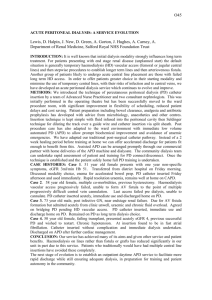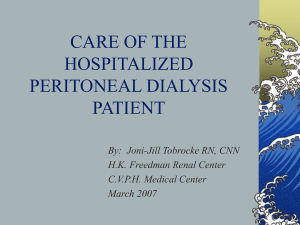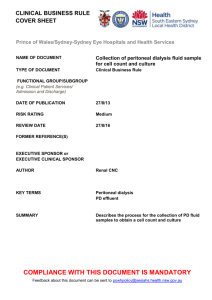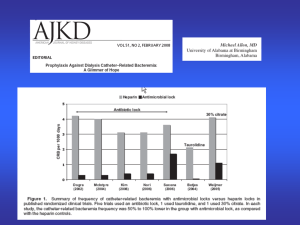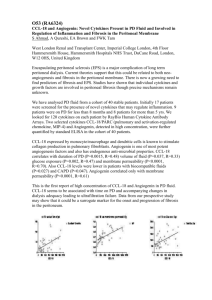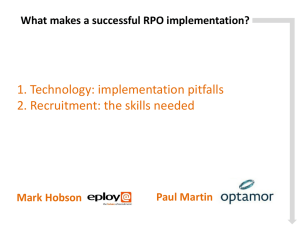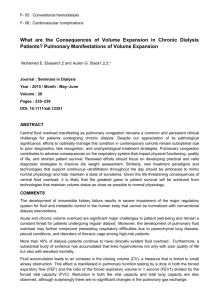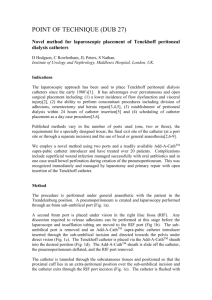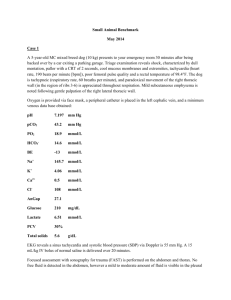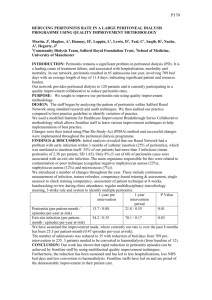PERITONEAL DIALYSIS
advertisement
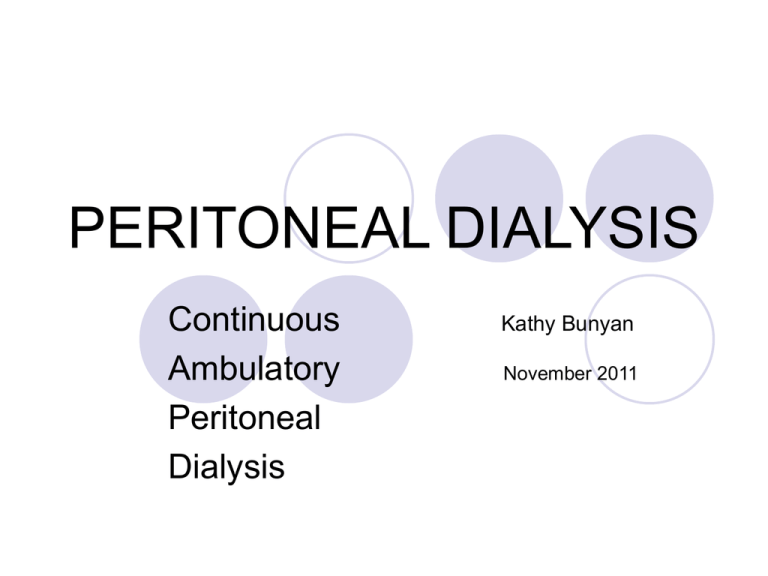
PERITONEAL DIALYSIS Continuous Ambulatory Peritoneal Dialysis Kathy Bunyan November 2011 Dialysis occurs 24 hours/day Dialysis fluid infused into peritoneal space via a permanent catheter Peritoneal membrane is the filter Dialysis takes place by osmosis and diffusion Glucose is used as the osmotic agent Diffusion displacement of substances from blood until equilibrium 4-5 exchanges a day Starts with fluid in peritoneal cavity DRAIN- through a closed system the fluid is drained by gravity FLUSH - small mount flushed into drain bag to clear line FILL – new fluid run into peritoneal cavity via the closed system DWELL – fluid dwells 4-6 hours APD Alternative to CAPD Pt has cycler machine Dialysis takes place over night usually 10 hr Can use much greater volumes thus achieve better dialysis Usually better for someone that works COMMON CAUSES FOR ED PRESENTATION Cloudy bag Abdominal pain /fever Fluid overload Blocked catheter CLOUDY BAG Patient should be able to see through the effluent bag Full bag of effluent to lab for microbiology If possible use micro forms from Waikato If pt does not present with a bag will need to do an exchange If on APD and they bring in the drain bag will need to do an exchange manually to send to lab ABDO PAIN/FEVER May be other causes but most usually peritonitis Needs bag to lab for micro Check for constipation May be UTI – not all pts are anuric Do not use morphine analgesia Methadone or Fentanyl can be used Need to instigate peritonitis treatment protocol following Waikato guidelines Starting A/B’s IP Cephazoline and Gentamycin Vancomycin and Gentamycin if pt allergic to penicillin or MRSA positive If bag exchange being done to instill A/B’s must flush before adding Can always contact on call 0800772299 PD nurse is on call 24/7 FLUID OVERLOAD Pts all have a target weight Usually use 1.5% or 2.5% dianeal Treat pulmonary congestion with fluid removal use frequent exchanges using 4.25% dianeal Treat hypertension with fluid removal Use of 4.25% dianeal Extra exchanges BLOCKED CATHETER Do not disconnect catheter Attempt usual bag exchange Use heparin Call on call nurse During normal work hours please call PD nurse pg76 or ex 8159 or alternatively on cell ph via telephone operator BLOOD RESULTS REFERENCE Biochemistry Na 135 – 145 mmol/l K 3.2 – 6.0 mmol/l Cr 600 – 1200 mmol/l Ur <25 mmol/l Ca 2.15 – 2.57 mmol/l PO4 < 1.80 mmol/l Haematology Hb 110 – 120 g/l Hct 0.33 – 0.36 WC 4.0 – 11.0 Platelets 150 - 400
